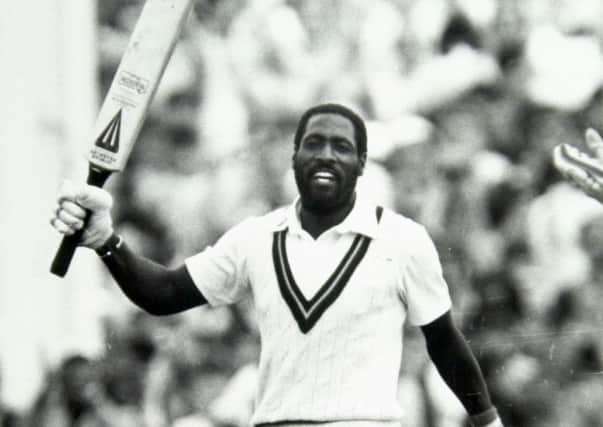On this day: End of an era for West Indies greats


Viv Richards, Malcolm Marshall and Jeffrey Dujon, three giants of West Indies and world cricket, reached the end of the road against England at The Oval.
Sadly, it was not the fairytale ending that they would have wished for as England’s five-wicket win saw the series finish 2-2 with one match drawn.
Advertisement
Hide AdAdvertisement
Hide AdBut the outstanding achievements of the trio live on, their names evoking an unforgettable era of West Indies’ success throughout the 1980s.
Richards, the emperor of batsmen and one of Wisden’s ‘Five Cricketers of the Century’, scored 60 in the second innings in the match at The Oval to keep his Test batting average above 50.
Anything less would have been perverse after a career as glorious as any in the game’s long history.
Richards was to batting what Mozart was to music, what Picasso was to painting, or any such analogy one cares to conceive.
Advertisement
Hide AdAdvertisement
Hide AdHe was the most destructive batsman of his era, a man of magnetic presence and mesmerising skill, whose very walk to the crease could strike fear into opponents’ hearts just as surely as it could strike unbridled anticipation into the hearts of spectators who worshipped at the altar of his divine talent.
Richards could whip bowlers through mid-wicket as easily as the rest of us draw breath, or step outside leg-stump to carve them through the covers with similar facility. To watch him was to spend a day at the cricket and a night at the theatre rolled into one; if there has been a more compelling sight in the game, it has escaped the attention of many.
Marshall was frighteningly compelling in a different way, the way that great fast bowlers are who marry high skill with limb-threatening menace.
Short in stature and with an angled, pitter-patter approach to the crease, Marshall had an open action and fast arm that propelled vicious swingers, cutters and bouncers as challenging as they come.
Advertisement
Hide AdAdvertisement
Hide AdHis final wicket at The Oval was that of Graham Gooch, pinned lbw, to give him a grand total of 376 in 81 Tests at an average of 20.94. There are those who contend that Marshall was the finest fast bowler of all time – one can almost hear Fred Trueman’s indignant protests from the Elysian Fields – and the whole cricket world mourned his death from cancer in 1999 at the age of 41.
Dujon was a lithe, athletic figure who made keeping to the West Indies’ formidable battery of fast bowlers look like child’s play. He never took part in a losing Test series and claimed 267 catches – many of them spectacular – and five stumpings. He could bat too, scoring 3,322 Test runs, including five hundreds.
In any other side, Dujon might have had even more recognition; as it was, he was relatively unsung when set against the likes of Richards and Marshall, with the West Indian team of the period packed with almost as many stars as the Andromeda galaxy.
On August 12, 1991, as England celebrated at The Oval, these three musketeers slipped quietly away, leaving a trail of memories that will never die.